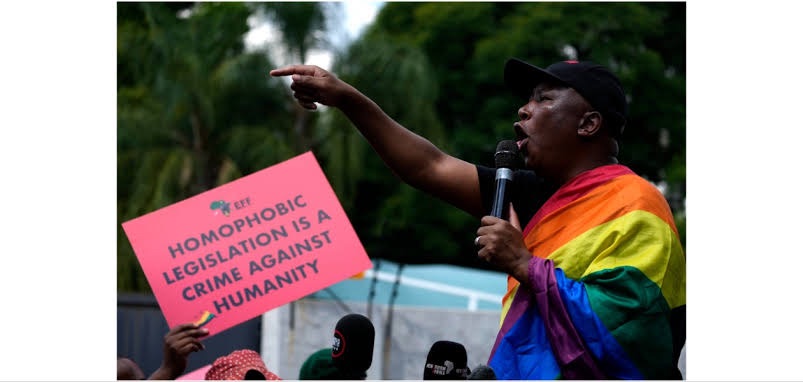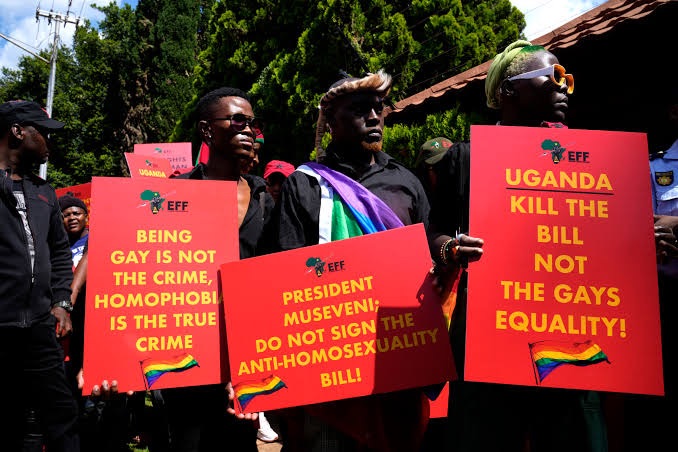Uganda’s Constitutional Court on Wednesday rejected a bid to overturn a controversial anti-gay law that is considered one of the toughest in the world.
“We decline to nullify the Anti-Homosexuality Act 2023 in its entirety, neither will we grant a permanent injunction against its enforcement,” Justice Richard Buteera, Uganda’s deputy chief justice and head of the court, said in the landmark ruling.
The legislation was adopted in May last year, triggering outrage among the LGBTQ community, rights campaigners, the United Nations and Western nations.
The Anti-Homosexuality Act 2023 imposes penalties of up to life in prison for consensual same-sex relations and contains provisions that make “aggravated homosexuality” an offence punishable by death.

President Yoweri Museveni’s government has struck a defiant tone, with officials accusing the West of trying to pressure Africa into accepting homosexuality.
The petition was brought by two law professors from Makerere University in Kampala, legislators from the ruling party and human rights activists.
They had charged that it violates fundamental rights guaranteed by Uganda’s constitution, including freedom from discrimination and the right to privacy.
The petitioners also said it contravened Uganda’s commitments under international human rights law, including the United Nations convention against torture.
The court had begun hearing the case in December.
A 20-year-old man became the first Ugandan to be charged with “aggravated homosexuality” under the contested law in August last year.
He was accused of “unlawful sexual intercourse with… (a) male adult aged 41”, an offence punishable by death.
Uganda, a conservative predominantly Christian country in East Africa, is notorious for its intolerance of homosexuality.
It has resisted pressure from rights organisations, the United Nations and foreign governments to repeal the law.
The United States, which threatened to cut aid and investment to Kampala, imposed visa bans on unnamed officials in December for abusing human rights, including those of the LGBTQ community.
The World Bank announced in August it was suspending new loans to Uganda over the law, which “fundamentally contradicts” the values espoused by the US-based lender.
In December, Ugandan state minister for foreign affairs Henry Okello Oryem accused the West of seeking “to coerce us into accepting same-sex relationships using aid and loans”.
In 2014, international donors had slashed aid to Uganda after Museveni approved a bill that sought to impose life imprisonment for homosexual relations, which was later overturned.

But the latest anti-gay law has enjoyed broad support in the country, where lawmakers have defended the measures as a necessary bulwark against Western immorality.
Last month, a Ugandan court dismissed an appeal by a gay rights group seeking government registration, ruling that it aimed to promote “unlawful” activities.
The Court of Appeal said any registration of the group Sexual Minorities Uganda (SMUG) was against the public interest and national policy.